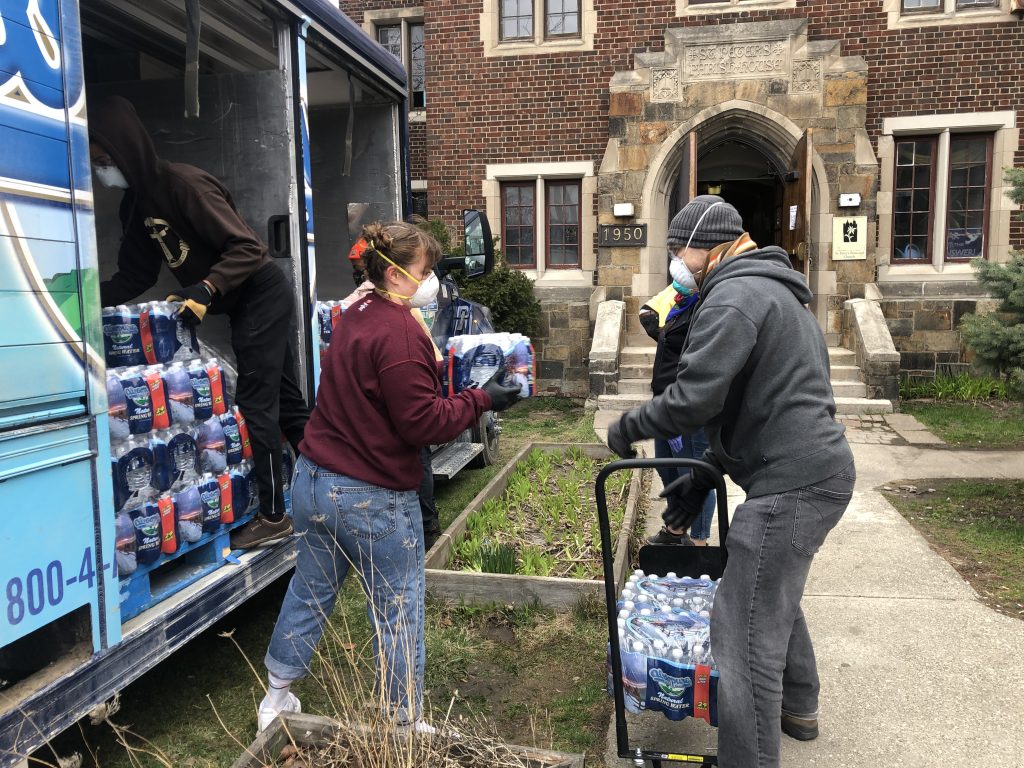New book explores the complex history of environmental rights in Detroit
‘Toxic Debt’ author Josiah Rector joins CultureShift to discuss the long history behind Detroit’s access to clean, affordable water.

We the People of Detroit distributes bottled water during a water shutoff in January 2021. Photo credit: Eli Newman, WDET.
There’s a complicated relationship between Detroit residents and public infrastructure. The reliability of the city’s mass transit, power utilities, waste removal and other public works have often lagged behind the quality and service of the region and other major metropolitan areas.
In the 2010s, however, a systemic failure never previously seen in the city’s history began when thousands of Detroiters were left without running water after city officials shut off their access to a resource the U.N. calls a human right.
The story of how and why the massive water shutoffs happened begins more than a century ago, according to historian Josiah Rector. He’s an assistant professor of history at the University of Houston and the author of the new book, ‘Toxic Debt: An Environmental Justice History of Detroit.’
The book follows the complex history of environmental rights in Detroit and the often unjust politics behind the fight for clean, affordable water.
Related: How Coronavirus Changed Detroit’s Water Shutoff Policy
Rector says the book began as the research for his graduate dissertation at Wayne State University.
“I was studying the history of infrastructure and environmental politics in the city and when I started to look into the history of water shutoffs in particular, I found there hadn’t been a water shut-off crisis comparable to what was going on in the 2010s since the Great Depression.”
With the New Deal, Rector says, the water shut-off crisis in Detroit had seemed to end. Between then and the early 2010s, there were very few residential water shut-offs. But that changed radically just over a decade ago. In ‘Toxic Debt,’ Rector investigates what he calls a ‘reversal of progress.’
Trusted, accurate, up-to-date.
WDET strives to make our journalism accessible to everyone. As a public media institution, we maintain our journalistic integrity through independent support from readers like you. If you value WDET as your source of news, music and conversation, please make a gift today.
